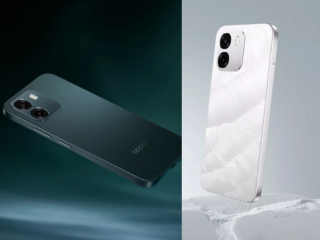- Home
- Transportation
- Transportation News
- Dyson Chooses Singapore Over Britain to Build Electric Car
Dyson Chooses Singapore Over Britain to Build Electric Car
James Dyson, the billionaire British inventor of the bagless vacuum cleaner, has chosen to build his electric car in Singapore to be close to Asian customers, supply chains and a highly skilled workforce.
The 71-year-old entrepreneur, who backed Brexit in the 2016 referendum, already manufactures products such as hair dryers, air purification systems and bladeless fans in Asia, while its research and development remains in Britain.
One of the best-known engineering companies in the United Kingdom, Dyson announced a $2.6 billion (roughly Rs. 19,000 crores) move into electric cars last year after a 400-strong British-based engineering team spent the first 2-1/2 years working on the project in secret.
"The decision of where to make our car is complex, based on supply chains, access to markets, and the availability of the expertise that will help us achieve our ambitions," Dyson Chief Executive Jim Rowan said.
Carmakers are stepping up investment in electric vehicles in response to ever-tightening emissions restrictions and penalties on the use of internal combustion engines, with some countries already promising outright bans.
Dyson is looking to exploit its ability in solid-state battery technology and electric motors that are found in its innovative vacuum cleaners and other products.
James Dyson told reporters last year that his ambition to go it alone was driven by the car industry's dismissal of an idea he had of applying his cyclonic technology that revolutionised vacuum cleaners to handle diesel emissions in car exhaust systems in the 1990s.
The inventor was a prominent backer of Britain's vote to leave the European Union and has argued that Britain's future lies in building close ties with fast-growing markets in Asia, and not Europe.
Singapore is a densely populated city-state and one of the world's most expensive places to own a car.
It controls vehicle population through a system of bidding for the right to own and use a vehicle for a limited number of years. Elon Musk, chief executive of Tesla, criticised Singapore for not being supportive of electric vehicles earlier this year.
But the city state has trade agreements with China and Japan and Dyson CEO Rowan said the comparatively high cost base would be offset by its technology expertise and focus.
"It is therefore the right place to make high-quality technology loaded machines, and the right place to make our electric vehicle," he said.
Dyson started its work on the electric car in Wiltshire, western England, where it is investing GBP 200 million ($260 million) in new buildings and a testing track at its campus.
In Singapore, where it already employs 1,100 people to build digital electric motors, it will build a new two-storey production manufacturing facility, with the first cars set to be launched in 2021.
© Thomson Reuters 2018
Catch the latest from the Consumer Electronics Show on Gadgets 360, at our CES 2026 hub.
Related Stories
- Samsung Galaxy Unpacked 2025
- ChatGPT
- Redmi Note 14 Pro+
- iPhone 16
- Apple Vision Pro
- Oneplus 12
- OnePlus Nord CE 3 Lite 5G
- iPhone 13
- Xiaomi 14 Pro
- Oppo Find N3
- Tecno Spark Go (2023)
- Realme V30
- Best Phones Under 25000
- Samsung Galaxy S24 Series
- Cryptocurrency
- iQoo 12
- Samsung Galaxy S24 Ultra
- Giottus
- Samsung Galaxy Z Flip 5
- Apple 'Scary Fast'
- Housefull 5
- GoPro Hero 12 Black Review
- Invincible Season 2
- JioGlass
- HD Ready TV
- Laptop Under 50000
- Smartwatch Under 10000
- Latest Mobile Phones
- Compare Phones
- Honor Magic 8 RSR Porsche Design
- Honor Magic 8 Pro Air
- Infinix Note Edge
- Lava Blaze Duo 3
- Tecno Spark Go 3
- iQOO Z11 Turbo
- OPPO A6c
- Samsung Galaxy A07 5G
- Lenovo Yoga Slim 7x (2025)
- Lenovo Yoga Slim 7a
- Lenovo Idea Tab Plus
- Realme Pad 3
- Moto Watch
- Garmin Quatix 8 Pro
- Haier H5E Series
- Acerpure Nitro Z Series 100-inch QLED TV
- Asus ROG Ally
- Nintendo Switch Lite
- Haier 1.6 Ton 5 Star Inverter Split AC (HSU19G-MZAID5BN-INV)
- Haier 1.6 Ton 5 Star Inverter Split AC (HSU19G-MZAIM5BN-INV)
-
 Nikosh Chhaya Season 2 OTT Release Date Revealed: Know When and Where to Watch This Bengali Horror Series
Nikosh Chhaya Season 2 OTT Release Date Revealed: Know When and Where to Watch This Bengali Horror Series
-
 Oppo A6 5G Launched in India With 7,000mAh Battery, 50-Megapixel Camera: Price, Specifications
Oppo A6 5G Launched in India With 7,000mAh Battery, 50-Megapixel Camera: Price, Specifications
-
 Motorola Edge 70 Fusion Full Specifications Including Snapdragon 7s Gen 3 SoC, 7,000mAh Battery Leaked
Motorola Edge 70 Fusion Full Specifications Including Snapdragon 7s Gen 3 SoC, 7,000mAh Battery Leaked
-
 Splitsville Now Streaming on Amazon Prime Video: Know Everything About This American Dark Comedy
Splitsville Now Streaming on Amazon Prime Video: Know Everything About This American Dark Comedy





![[Sponsored] Haier C90 OLED TV | Dolby Vision IQ, 144Hz OLED and Google TV in Action](https://www.gadgets360.com/static/mobile/images/spacer.png)





